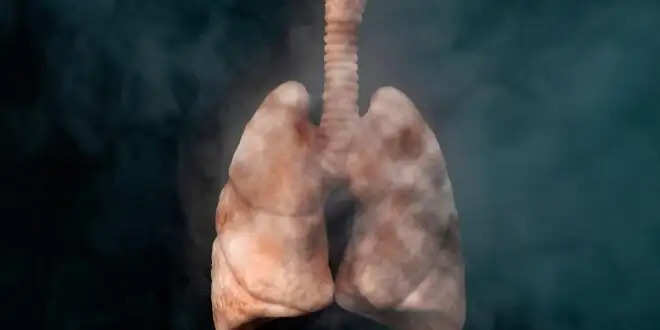How can toxic air of Delhi-NCR damage the lungs? Be sure to get this test done
Delhi-National Capital Region (NCR) is grappling with a severe and alarming issue – its toxic air. This air pollution poses a grave threat to the health of its residents. The perilous pollutants present in this toxic air, including sulfur dioxide, nitrogen oxides, particulate matter (PM), and ozone, can wreak havoc on the human respiratory system. ... Read more

Delhi-National Capital Region (NCR) is grappling with a severe and alarming issue – its toxic air. This air pollution poses a grave threat to the health of its residents. The perilous pollutants present in this toxic air, including sulfur dioxide, nitrogen oxides, particulate matter (PM), and ozone, can wreak havoc on the human respiratory system. Inhaling these pollutants can lead to lung inflammation, resulting in difficulties in breathing, persistent coughs, and chest pains.
The Importance of Respiratory Health Monitoring
Dr. Vijayan Mishra, the Chief of Lab-Newberg Diagnostics in Noida, emphasizes the need for monitoring and assessing the health of our lungs. Various diagnostic tests play a crucial role in early detection and effective management of respiratory issues.
Pulmonary Function Test (PFT)
PFTs are non-invasive tests that measure how well your lungs are functioning. They assess vital lung parameters such as lung capacity, air flow, and oxygen exchange. These tests are especially important for diagnosing conditions like Chronic Obstructive Pulmonary Disease (COPD), asthma, and restrictive lung diseases.
Chest X-ray Examination
Chest X-rays are often the initial step in evaluating the health of the lungs. They can reveal various lung conditions, including infections, tumors, and structural abnormalities. Regular chest X-rays can help detect early signs of lung problems.
Computed Tomography (CT) Scan
CT scans provide more detailed images of the lungs, enabling the early identification of minor abnormalities or diseases. They are particularly useful in diagnosing lung cancer and complex lung infections.
Arterial Blood Gas (ABG) Test
The ABG test measures the levels of oxygen and carbon dioxide in your blood. It is crucial in assessing how effectively your lungs supply oxygen to the body and remove carbon dioxide. ABG tests are commonly used in intensive care units and emergency situations.
Sputum Culture (Mucus Examination)
If you are experiencing symptoms of a lung infection, your doctor may recommend a sputum culture test. This test analyzes mucus produced after coughing to identify the specific cause of the infection, whether it’s bacteria, viruses, or fungi. This helps in pinpointing the exact reason for the infection.
Early Detection is Key
Early detection of respiratory issues is vital for prompt treatment and better outcomes. Diagnostic tests allow healthcare professionals to identify problems in their early stages, enabling timely intervention.
Preventive Measures and Mitigation
In addition to regular health check-ups, individuals can take proactive steps to protect themselves from the harmful effects of air pollution. Wearing masks, using air purifiers, and reducing outdoor activities on days with poor air quality are some practical measures.
Conclusion
In Delhi-NCR, breathing clean air has become a luxury. The city’s toxic air poses a significant threat to the respiratory health of its residents. However, with early detection and proactive measures, individuals can reduce the risks associated with air pollution.
Common symptoms include difficulty in breathing, persistent cough, chest pain, and wheezing.
.PNG)